Singapore state investment arm Temasek announced this week that it recorded a net portfolio value of S$313 billion as of March 31, 2019, but also reported a significantly lower total shareholder return than in previous years.
At the annual Temasek Review press conference on July 9, it also highlighted that a cautious approach is necessary in view of macroeconomic headwinds and evolving geopolitics around the world.
As a long-term investor, Temasek has unveiled the key trends that will influence their investment strategy moving forward at the conference.
Focus on sustainability
As sustainable living is one of the six key trends Temasek is watching, its investments will go partly into companies that provide solutions to the multiple impacts of climate change.
There is no doubt that Temasek places a strong emphasis on this, with its top leaders having weighed in on the issue before:
Climate change is the "most urgent challenge" faced by humanity today and hence "sustainability is, and should be, at the core of everything we do", as articulated by Lim Boon Heng, Temasek chairman.
Adding to that, Chief Executive Officer of Temasek International Dilhan Pillay also stated, at the press conference sharing their performance on Tuesday, that "sustainability is a journey" that will help its investment portfolios achieve better outcomes too.
An example is DBS Bank, which earlier this year committed to cease coal power plant financing.
Temasek also aims to halve its carbon emissions by 2030, with the eventual goal of reaching carbon neutrality.
It has therefore incorporated stringent environmental, social and governance (ESG) considerations in their investment decision-making, Dilhan said.
Catalysing sustainable solutions
Some of these investments in sustainable solutions are closer to home than you might think.
After all, the majority of Temasek's holdings lie in Asia, and Singapore is home to 26 per cent of its investments (China holds another 26 per cent).
Some of these solutions can help Singapore cope with climate change in three main areas:
- adapting to warmer weather,
- food agriculture, and
- waste management.
Here are some examples of initiatives Temasek is committing funds to:
Cool and smart bus stops
To beat the heat in Singapore's increasingly sweltering weather, Temasek partnered ST Engineering to design a smart bus stop that can cool the air for commuters waiting there.
Named the Airbitat Oasis Smart Bus Stop, the bus stop's overhead cooling and purification unit blows out 24ºC cool air, and can clock up to 70 per cent energy savings as compared to a conventional air conditioner.
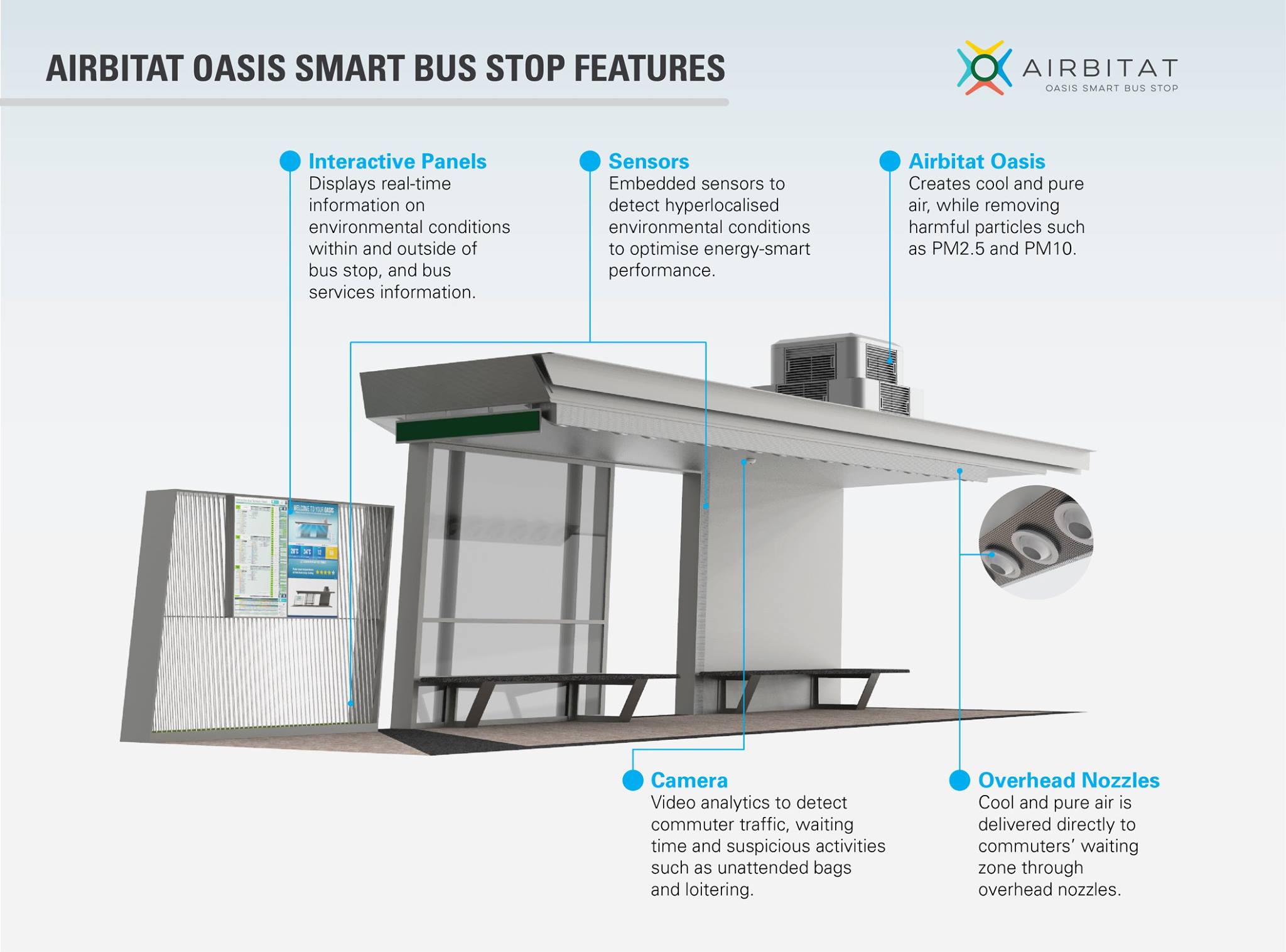 Graphic via ST Engineering / FB
Graphic via ST Engineering / FB
That's not all — the bus stop also has filters to remove harmful PM2.5 particles emitted by vehicles passing by.
With the advent of artificial intelligence, this smart bus stop is able to utilise advanced machine learning to take into account dynamic ambient conditions, and adjust its cooling modes accordingly.
The first smart bus stop can be found outside Plaza Singapura at Dhoby Ghaut.
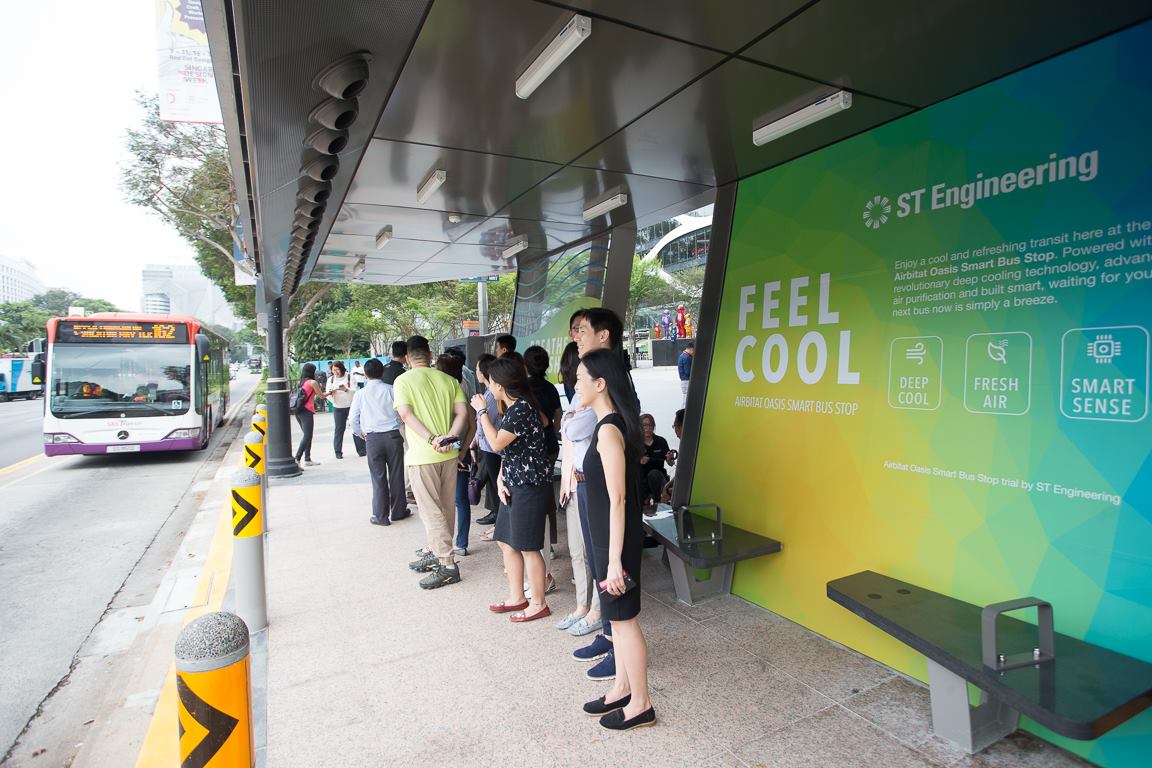 Photo from ST Engineering / FB
Photo from ST Engineering / FB
Food
Another sustainable solution Temasek has invested in aims to boost Singapore's self-sufficiency in the food industry.
Sustenir Agriculture is a company that uses high-tech methods to locally grow temperate-climate crops and fruits that previously could not be cultivated here.
Vegetables and fruits like kale, cherry tomatoes, and strawberries, which conventionally have to be imported from overseas, can now be grown in the company's indoor vertical farms.
The crops are grown in a highly controlled environment, using a combination of LED lights and automated irrigation systems.
Sustenir plans to only grow imported produce so as to reduce competition with local producers.
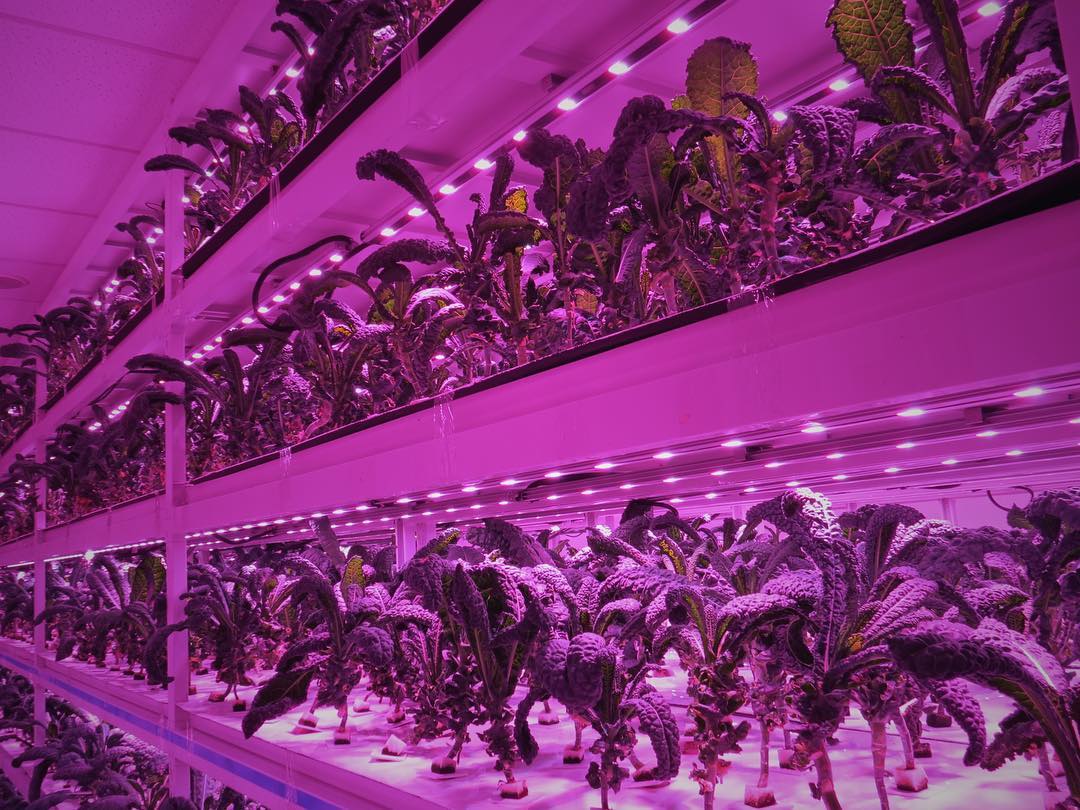 Photo from Sustenir Agriculture / FB
Photo from Sustenir Agriculture / FB
This method of farming is particularly beneficial to land-scarce Singapore, and will also help us toward reaching our 30 per cent home-produce goal by 2030.
Waste
Last month, Temasek co-funded a system that reduces and converts waste into material that can nourish plants.
Launched during Temasek's Ecosperity Conference, the two-year pilot project, undertaken in partnership with Singapore Power, was installed at Gardens By The Bay.
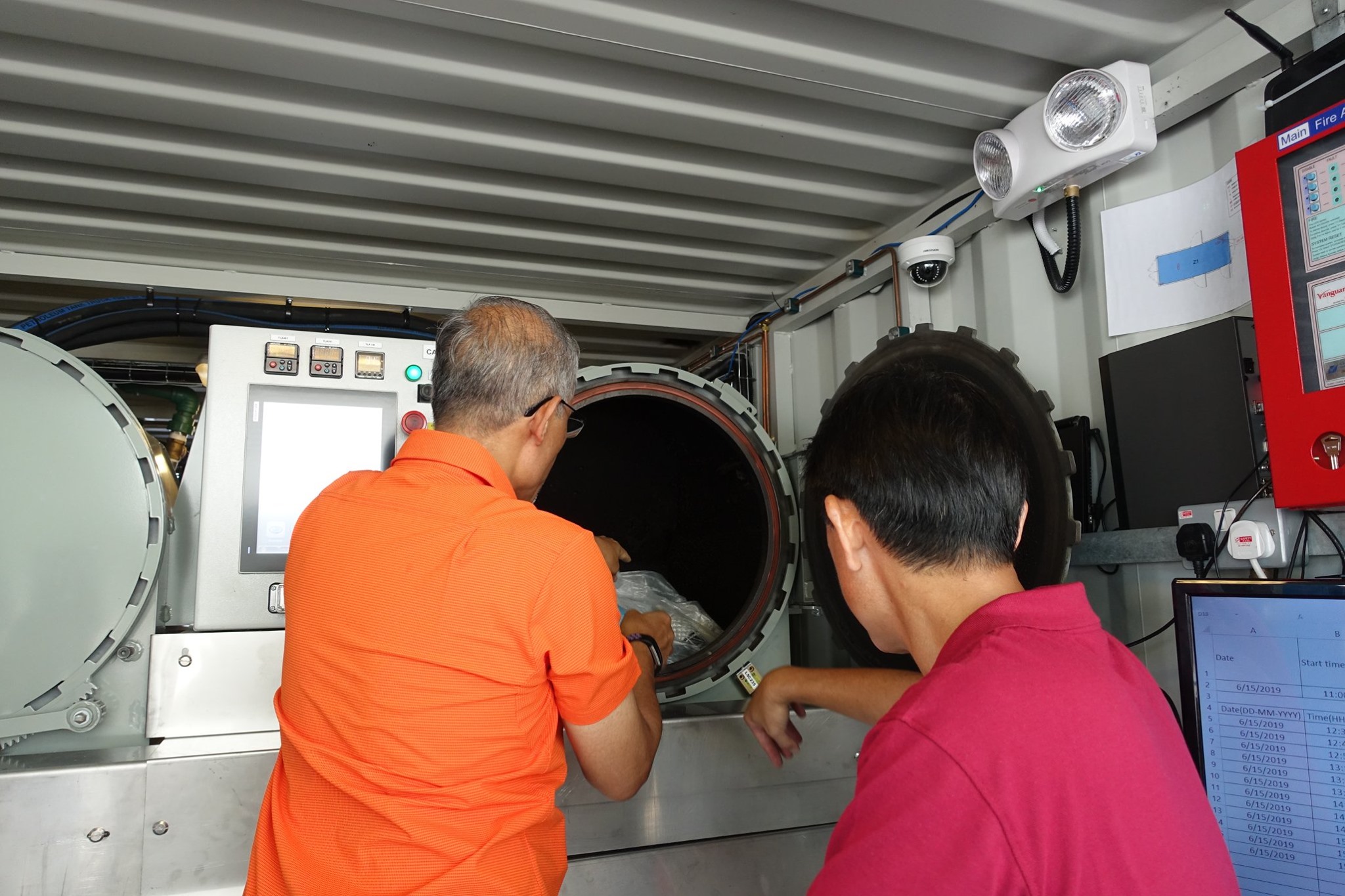 Minister for Environment and Water Resources Masagos Zulkifli testing out the gasification system. Photo from Masagos Zulkifli / FB
Minister for Environment and Water Resources Masagos Zulkifli testing out the gasification system. Photo from Masagos Zulkifli / FB
The smart waste management system makes use of a zero-waste gasification technology to convert waste produced at the tourist destination into a material called biochar (carbonised biomass).
It reduces waste to only five per cent of its original volume, and the product, biochar, can be added to plant soil, reportedly helping plants retain nutrients and water better.
Temasek also actively supports start-ups and individuals who develop methods to turn waste into useful materials.
The Temasek Shophouse in Dhoby Ghaut houses start-ups like Miniwiz, which turns waste such as coconut husks, plastic bottles, and construction materials into clothing material.
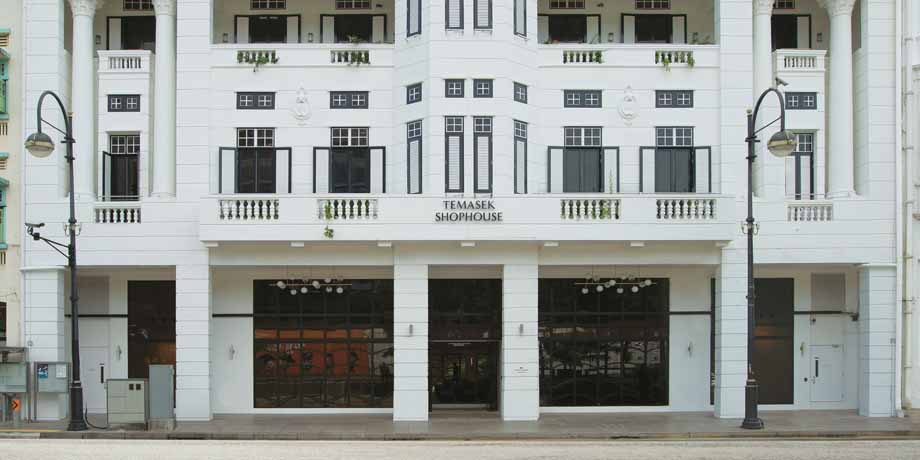 Photo via Temasek.
Photo via Temasek.
It also houses an interesting-looking exhibition that engages the community in methods to live a sustainable lifestyle.
You can check the inconvenience store out this weekend.
To read Temasek's 2019 review in full, you can check out this link.
Here's an overview of how Temasek did in FY2019:
Top photo collage from Temasek and Sustenir Agriculture
If you like what you read, follow us on Facebook, Instagram, Twitter and Telegram to get the latest updates.
